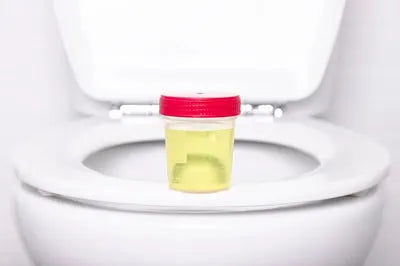Prostate heath is a significant concern for men as they age, as nearly 1 in 2 men over the age of 50 experience the inconvenient symptoms of an enlarged prostate. While medical treatment options exist, adopting a prostate-friendly diet can complement these efforts greatly.
Come with us, let’s take a look at why the right diet for enlarged prostate is important and make ourselves familiar with specific drinks and foods that shrink prostate gland!
What is an enlarged prostate?
Before diving into the food recommendation for an enlarged prostate, let’s understand what an enlarged prostate is. The prostate is a walnut-sized gland located right beneath the urinary bladder and around the urethra (a hollow tube that takes urine out of the body).
Now, just like the nose and ears, which continue to grow throughout your life, the prostate too undergoes a constant increase in size as men age. This constant growth eventually leads to an enlarged prostate. Since the prostate is so close to the bladder and the urethra, an enlarged prostate presses against the urine-pipe, causing a sort of a block in the free flow or urine. This can lead to symptoms related such as urine leakage, frequent urination, weak urine stream, and difficulty stopping and starting urination.
Until your treatment takes effect, and you get relief from enlarged prostate symptoms, Friends Adult Diapers can serve as your reliable solution for maintaining comfort and confidence throughout your day.
Friends Adult Diapers:
• Provide up to 16+ hours of protection from leakage and spills, depending on the variant.
• Prevent any pooling of liquid with ADL technology that rapidly and evenly absorbs and distributes liquids.
• Come equipped with side leak guards to prevent any trickles from the sides.
• Are anti-bacterial and made of extremely soft, cottony, non-woven material to keep your skin safe and healthy.
• Lock in urine odours, allowing you to go about your day worry-free.
• Are 100% free from chlorine, toxins, latex, and harmful artificial fragrances.
If you are considering using Friends Diapers or are experiencing nervousness around your choice of a diapering product, feel free to call us on our toll-free helpline number 18002660640. It will be our pleasure to serve you!
What Role Does Diet Play in Prostate Health?
Diet plays a crucial role in maintaining prostate health. Foods and drinks containing certain nutrients and compounds have been linked to reducing the risk of prostate problems, including enlarged prostate.
Additionally, the prostate is a vascular gland, which means it contains numerous blood vessels. So, the same foods that keep your heart healthy and protect against any cardiovascular diseases, help keep your prostate healthy too. And the same foods that worsen your heart health, worsen your prostate health too. Yes, there are certain foods to avoid with enlarged prostate. A diet high on all the wrong things for prostate health, such as red meat, dairy, caffeine, alcohol, and sodium (salt), can not only worsen an enlarged prostate, but also increase your risk of developing prostate cancer!
6 Foods That Can Reduce an Enlarged Prostate
1. Tomatoes
Tomatoes are the richest source of lycopene, a powerful antioxidant that has been extensively studied for its potential to lower the risk of prostate issues.
However, lycopene is found in the skin of the tomatoes, and your body might have a hard time absorbing it. For this reason, tomato sauce (homemade, not the one’s readily available for you!), tomato soup, and foods made with tomatoes are the best ways to consume lycopene.
Generally, all natural foods with a rich pink or red colour contain lycopene.
2. Cruciferous vegetables
Cabbage, cauliflower, broccoli, and other cruciferous vegetables contain essential vitamins, minerals and antioxidants that help reduce inflammation and maintain a healthy prostate. They are also high in compounds like sulforaphane that have anti-cancer properties.
3. Green tea
Once you swear off caffeine (coffee and tea), green tea is going to be your god-sent blessing. Regular consumption of green tea has been linked with a decreased risk of prostate-related issues, making it one of the best foods for enlarged prostate.
Green tea contains compounds like catechins, which are potent antioxidants known for their anti-cancer and anti-inflammatory properties, keeping you safe from prostate cancer and potentially reducing the swelling of enlarged prostate.
4. Berries
Berries such as strawberries, blueberries, and raspberries are loaded with vitamins, antioxidants, and fibre, which can contribute to a better prostate health and prevent prostate cancer. They are also rich in Vitamin C, which is an important healing vitamin that can help prevent enlarged prostate symptoms.
5. Fatty fish
Cold-water fatty fish such as Indian Mackerel/Bangda, Hilsa and Rohu are rich in omega-3 fatty acids, known for their potential to safeguard against prostate cancer, inflammation, obesity, and numerous other factors that could further worsen an enlarged prostate.
If you’re not a fan of fish, then you can get your omerga-3s from ground flaxseeds, chia seeds, walnuts, and soybeans.
6. Nuts and seeds
Nuts and seeds are one of the top foods to shrink prostate gland! Nuts and seeds are rich in zinc, a mineral believed to balance testosterone and the hormones produced by the prostate (DHT), both of which can lead to the enlargement of prostate cells. Besides nuts and seeds, legumes are also high in zinc.
Do You Have to Consult a Dietitian?
While it’s not strictly necessary, consulting a dietitian or healthcare professional is advisable, especially if you have any other existing medical conditions or concerns. A dietitian can help you create a well-balanced diet plan that not only supports your prostate health but also meets your overall nutritional needs.
Keep in mind that no single food or nutrient can guarantee the prevention or treatment of an enlarged prostate. However, a holistic approach, which includes a balanced enlarged prostate diet, maintaining a healthy weight, engaging in regular physical activity, and undergoing routine medical check-ups, can certainly aid in keeping your prostate healthy and potentially put an end to the enlarged prostate symptoms.
FAQs:
What are the key nutrients and compounds in these foods that promote prostate health?
The key nutrients mentioned in this blog that promote prostate health include:
• Lycopene: Found in tomatoes
• Sulforaphane: Found in cruciferous vegetables
• Antioxidants: Found in berries, green tea, cruciferous vegetables
• Omega-3 fatty acids: fatty fish, flaxseeds, chia seeds
• Zinc: Nuts and seeds
Can these foods completely cure an enlarged prostate, or are they just supportive measures?
While these foods can certainly be supportive measures for prostate health, they are not guaranteed to completely cure an enlarged prostate. An enlarged prostate, or BPH, is a complex condition influenced by various factors including genetics, hormonal changes, and age. While a balanced diet rich in prostate-friendly foods can help manage symptoms and potentially reduce the risk of complications, they are not a standalone solution for curing BPH.
How long does it usually take to see improvements in prostate health with dietary changes?
The timeline for seeing improvements in prostate health through dietary changes can vary widely. It's important to remember that dietary changes alone might not yield immediate results. While some individuals may notice positive changes within a few weeks, others might take longer to experience noticeable improvements.
Are there any foods that should be avoided or limited for better prostate health?
Limit or avoid these foods for better prostate health:
• Red meat
• Dairy
• Caffeine
• Alcohol
• Sodium (salt)
Can dietary changes alone replace medical treatment for an enlarged prostate?
While dietary changes can play a significant role in supporting prostate health, they are not a replacement for medical treatment. If you're experiencing symptoms of an enlarged prostate, it’s essential to work closely with a healthcare professional to receive proper diagnosis and develop a comprehensive treatment approach.
















